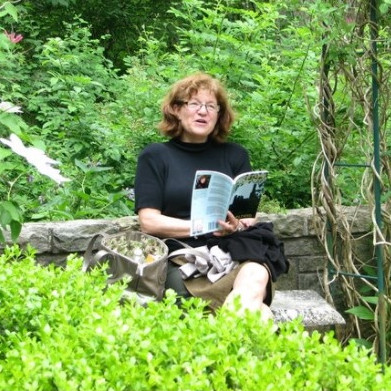The road to success in today’s writing life—replete with the snarky social media, finicky readerships, cautious publishers, magazines falling as quickly as they rise, among other pratfalls—is uncharted and murky, so who would not want some direction along the way? Writing education has long been a contentious subject. It is something taught or is it an innate gift? Can a writer be externally motivated or does it require an intrinsically motivated student to make the magic happen? When it comes to pedagogy, the stakes are raised for all kinds of reasons. Does one need a master writer to truly learn from? Is there a formula or rules to good writing? Does a “good” poem have requirements? Is “story” dead? Is narrative suspect? The list of questions easily turn into litany. One primary question surges and resurgence in the writing world: do you need to earn a Master of Fine Arts degree in order to become successful as a writer? What does it mean to be success as a writer today anyway? Does it mean being a “winning” writer?
Writer, lecturer, and past President of the Women’s National Book Association, Joan Gelfand, along with a bucket of contributing writers from across a wide swath of American writing life, suggests that No, no MFA is really required and Yes, you want to be a “winning” writer. In her book You Can Be a Winning Writer: The Four C’s Approach of Successful Authors, Gelfand outlines a road, which may prove to be no less burdensome, but unlike the support of certain ivory tower institutions, pointedly carves a place for the road in the world around the writer. Not that she doesn’t want MFA graduates to consider her offerings here, for she says she speaks to them as well. It’s a big sweep of the writing community she speaks to, and her vision for writers seemingly bypasses all doubts.
The foci of her presentation in on four Cs: Craft, Commitment, Community, and Confidence. It’s important to note that what Gelfand is presenting is not a strategy or a formula, just four practices writers should focus in order to “win.” The strategies smack of a verisimilitude that resonates with the practical realities of the writing life—the slights, the shams, the blatant nepotism, the flagrant jealousies among other unpleasant but very real aspects of the field, not to mention all the best parts of that community, which she speaks to in the section on Community.
In the first of her four sections, “Craft,” Gelfand weaves together anecdotes with lessons on workshops, advice from editors, Dos and Don’ts, workshops and retreats, time management, and editing. One section in particular goes out on a creative limb and addresses the use of dreams to compose original work. This section, as well as her tendency to exemplify more poets and fiction writers, decries her tendency to lean towards creative work rather than newspaper or nonfiction writers. That said, she leads readers into a cul-de-sac with a section on the cultivation of written work through dreams: its brevity leaves the reader with more questions than answers and would better be covered by an entire chapter, if not a entire book. This is where Gelfand leads her audience astray from her otherwise pragmatic approach to a writer’s life. This reviewer would have her skip it altogether and let her practical advice provide the lay of the land. It’s what you come to this book for.
Three remaining sections—Commitment, Community and Confidence—follow suit with sections that weave together many anecdotes from different writers’ lives and Dos and Don’ts and/or Challenge sections. The pragmatism of these sections continues to good effect. Her anecdotes speak to the highs and lows of being committed to writing despite all that can and does go wrong while in the process of a writing project. Whether it be the “simple” task of prioritizing your self-imposed deadline, building a resume, or pursuing “outlier” projects that defy the norms of the publishing world. This section also makes clear the mainstream leanings of her advice. It’s both a helpful angle to take up and one that feels limiting by design. With her focus on resumes and submissions to the large machinery of magazines, she seemingly forgets the DIY adventure. It’s a shame, because so much of the best underground publishing in America has taken this route.
The section on community divides could easily turn away more cynical readers. With subtitles like “The Art of Building Community,” one might easily think oneself in the same neck of the woods as Dale Carnegie’s How to Make Friends and Influence People, which most would say does not belong in the writing world. However, the world Gelfand speaks to in this chapter is our writing world. It is a world where connections with others, even for the shyest of poets, may be a necessity. It’s a world where everybody must chip in, and so we must be routinely seek out support from our fellow writers. The final section on confidence does a solid job of introducing a writer to the players in their world and discusses the importance of maintaining a sense of self within the swirling game around you. It is perhaps the least practical part of the book despite the important role it speaks to in a writer’s life. It’s also the most philosophical, so speaking about it will naturally be difficult.
In the process of describing how a writer becomes a winner, Gelfand unintentionally raises a question: what does it mean to be a winner in the writing world? The book gets so distracted with resumes and social media and publishing and prizes and positions gained as a resultof writing, it forgets to address what “winning” may really mean. I had always thought it was the connection you make by providing a place two people can share an intimacy not found anywhere else in known existence. I’d be happy with that. Why should we ever be so distracted from that goal?
***

PK ERIKSSON
PK ERIKSSON IS A POET, CRITIC, AND ENGLISH TEACHER FROM CHICAGO. PK LOVES THIS LIFE, EARTH, AND THE TIMELESS INTIMACIES WORDS SING. PK’S POEMS AND REVIEWS HAVE APPEARED IN THE LITERARY REVIEW, ANOMALY, THE SANTA FE NEW MEXICAN, QUAIL BELLE, AMONG OTHER PUBLICATIONS. @PKERIKSSON10 FOR TWITTER.
Original review can be read here.


